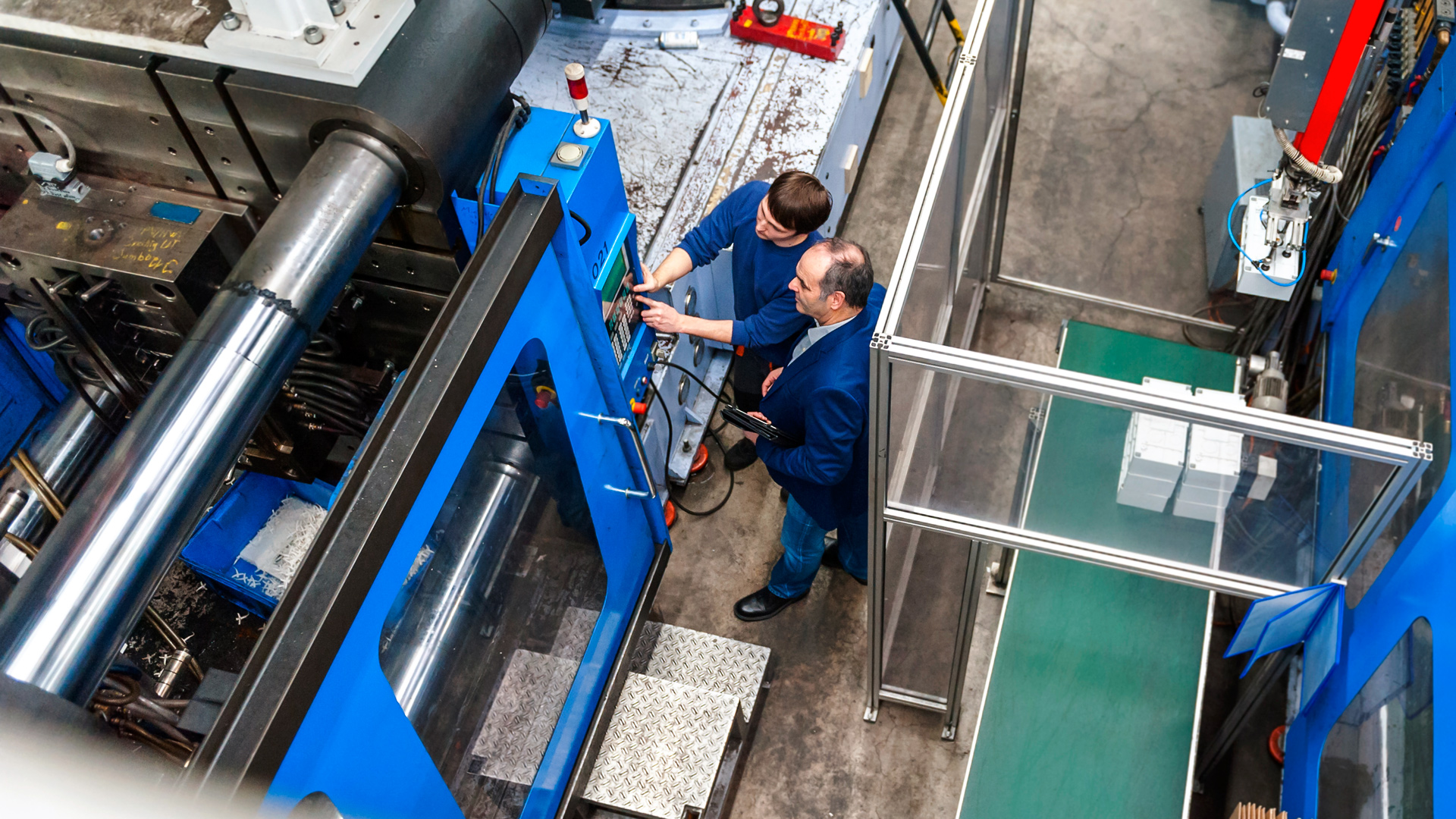
We’ve all been feeling the rising costs of living, energy bills going up, fuel prices rising and even the cost of putting food on the table has been adding additional strain to the wallet.
This creates additional stress for businesses, as employers are put under pressure to increase the salaries of their staff to help them provide for their families.
Not only that, but businesses themselves are also feeling the effects of increased fuel and energy prices, and particularly so in manufacturing.
So what can we do to try and combat this concern?
Well, the answer can be found in DELMIAWorks Manufacturing ERP, which provides a number of solutions to help manufacturing companies optimise their resource utilisation to become as cost-efficient as possible and ensure they’re turning a decent profit.
So let’s dive into what those solutions from DELMIAWorks are and how they can help you.

Using the Pricing module to accurately calculate costs
First up we have the pricing module within DELMIAWorks.
Some manufacturing businesses use spreadsheets to record business costs or pricing and we’ve even seen instances where estimates were being drafted up on the back of a piece of paper.
While these can sometimes be quick and easy ways to calculate prices for jobs, they are far from being the best for the business, particularly in times when the market is so volatile and prices are rising and falling very quickly.
By using these manual pricing methods, you’re not tracking your actual costs, and so you’re not getting a real picture as to how your business is running, or even as to whether the estimates you are providing are accurate.
When you’re quoting your customers, if you’re not using accurate overhead rates and accurate material costs, based on actual usage and consumption, then your estimates are just a guessing game.
In today’s world where the markets are so volatile this simply isn’t good enough and it’s a sure fire way of ensuring your business doesn’t turn the profit that it needs to.
By calculating your costs directly within DELMIAWorks Manufacturing ERP, you’re able to compare your actual costs against your standard costs and see whether your estimates have historically been accurate.
You’re also able to change overhead rates against machines and adjust labour rates in an agile manner, which gives you a far better overview of the impact of these changes from the point of view of cash flow and profitability.

Using Purchasing to make informed decisions on suppliers
Just like pricing ensures you’re giving your customers accurate quotes and estimates, purchasing helps you make sure that you’re making informed decisions when ordering from your suppliers, which can help you sat competitive amidst the rising costs of manufacturing.
Some companies have their favourite suppliers, they won’t necessarily buy the cheapest, or from the company that delivers the fastest, sometimes it’s just a case of using a supplier that they like dealing with.
But when you’re using a system like DELMIAWorks, you can gain access to all sorts of great data about your suppliers performance, such as:
- Tracked lead times
- Late delivery days
- Vendor performance
- Impact on delivery and production schedules
This data gives you great visibility over which of your suppliers are actually the best people to buy from, and which ones will help you run a more cost-efficient operation.
Coupling that with the fact you can store vendor-specific pricing information and price breaks against items, you’re able to ensure your buyers and purchasers are making the right decisions about where they buy their materials from.
Material purchasing is one of the key factors in ensuring you run a cost efficient operation and enabling your business to turn a healthy profit.
Use Planning & Scheduling to create more accurate and efficient schedules
Time is one of the most valuable things that any business has, but it’s also one of the most expensive.
That means that any working hour that’s under utilised is money down the drain for your business.
It’s for this reason that DELMIAWorks prides itself on being able to offer you the tools to help you plan and schedule your jobs efficiently, maximising the productivity of your manufacturing operation.
Within DELMIAWorks, you can accurately represent your production processes using Bill of Materials (BOMs) and Manufacturing Types, which allow you to plan as accurately as possible.
Many other systems don’t give you the ability to use different setup times, but DELMIAWorks does.
This means if a process involves a tool change, or a colour change, you can incorporate the varying setup times in your planning, which gives you a far better picture of what production is going to look like on your schedule.
The more accurate your schedules are, the better your time is going to be utilised.
And when you can access live data about how long a process should have taken, versus how long it’s actually taken, you can identify bottlenecks in your process and hold the relevant people accountable for not working to the schedule.
Being able to plan accurately and keep your schedule efficient can have a huge impact on your operational costs, because you’re ensuring things get done within the timeframe that they should be done.
And that’s exactly what you need in order to remain competitive with the rising costs of manufacturing affecting businesses globally.

Ensure machinery is properly looked after to boost Overall Equipment Effectiveness (OEE)
We’ve worked with many businesses who’ve had to deal with a machine going down in the middle of a production run and then having to firefight the problems that it causes.
And that’s exactly where OEE and Planned Maintenance from DELMIAWorks come into play.
Overall Equipment Effectiveness, or OEE for short, is exactly what it says on the tin.
It’s a way to determine the efficiency of the equipment that you’re using in your manufacturing operation and it was developed as a way to support Lean Manufacturing initiatives.
OEE can be achieved through the features available in DELMIAWorks such as Planned/Scheduled Maintenance.
Planned maintenance helps you ensure your equipment is well maintained, which reduces downtime as well as the overheads attributed to work orders.
If a machine hasn’t been properly maintained and goes down in the middle of a production run, then that has a knock on effect on the entire product schedule remaining in that shift.
As a result, all the following runs are behind schedule and as a result, the overhead costs of every run within that window are inflated.
When looking to run a cost-efficient operation, you want to ensure as little downtime for your machines as possible, and that’s why DELMIAWorks help you plan maintenance into the schedule and lets your planners plot production runs around it.
We’ve got another post entirely about OEE if you’d like to learn more about it.

Always buy and sell at the correct exchange rate with Multi-Currency Support:
Is your business dealing with customers or suppliers in different countries who use different currencies?
Fear not, as DELMIAWorks also has you covered here as well.
Not only are costs fluctuating for materials, energy and fuel, but the exchange rates for currency are as well.
If you’re running an international operation, you need to be confident that you’re buying in your materials at the right exchange rate, but also selling your products at them too.
DELMIAWorks gives you the power to manage multiple currencies with unlimited foreign currency conversions.
Not only this but you can also track the current rates to ensure you’re always operating at the exchange rate that’s accurate on the day that your transactions occur.
Conclusion
While we’ve highlighted a number of the great features available in DELMIAWorks in this post, there are so many other ways that the Manufacturing ERP and MES solution can help you to run a more cost-efficient operation.
Book a free consultation with us today to discuss your requirements and find out even more ways that DELMIAWorks can help you run a more cost-efficient manufacturing operation to combat the rising costs of manufacturing.
BOOK FREE CONSULTATION >
Posted by Rob on 12th July 2022.

